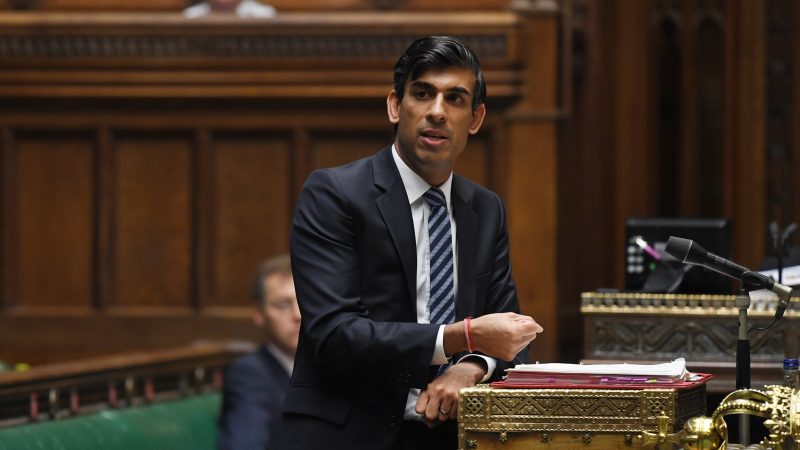
So much of recent British politics has come down to something quite simple. Swing voters identify the Conservatives with a steely economic competence – with a willingness to take tough decisions – but think they are in it for themselves. Those same swing voters think Labour cares about ordinary, working people but that the party can’t be trusted with the economy. Who wins has tended to be a question of which of those strengths and weaknesses seem more credible and more salient.
When we spoke to voters for this month’s JL Partners Times Radio focus group (a national sample of switchers from the Conservatives in 2019 to the Labour Party today), we heard that it is Labour who are winning on these terms.
These voters certainly see this trade-off. One person explained how she had voted Tory “because they made promises to get the country out of debt, to improve the economy” but felt this economic harshness “shouldn’t be at the detriment of people… they’ve taken it too far”. Another voter said they had shifted to Labour “because in the past they have been more focused on people… I think it’s time for that change again”.
In short, swing voters feel there is a “balance” to be struck between Conservative steel and Labour empathy, “where the country’s protected but so are the people”. For these switchers, recent events have left little doubt in their minds that this balance has been lost and that a Labour government is needed to restore it.
The cost-of-living crisis has intensified the feeling that the Tories don’t care
‘Partygate‘ underlined a latent feeling that the Conservatives don’t really care: they showed themselves to be “completely out of touch… with all the parties and stuff”. The cost-of-living crisis, while compounding the mini-Budget’s impact on perceived competence, has still more damningly driven home a feeling that the Conservatives aren’t thinking about ordinary people – that their hearts are in the wrong place. As one voter put it: “They’re focusing on big business and getting themselves and their friends richer… making money hand over fist while people are struggling to pay their mortgages.”
It might be surprising that at this time of economic crisis, people are not turning to the Conservatives, with their traditional strength of tough fiscal decision-making. The above offers some explanation: the cost of living has become an issue of values at least as much as competence. The criticism levelled at the government is that they won’t help, not that they can’t.
Johnson is partly to blame – but Sunak is seen as lacking empathy
The blame for this partly lies with Boris Johnson. Partygate set the context within which the cost of living has been understood – one of selfishness and callousness. So many of these voters feel they were taken in, that they granted the Conservatives their trust and were betrayed. They now feel they were “naïve” and “stupid”. This loss of trust means these switchers are unwilling to interpret the government charitably, that everything can become an issue of duplicitous, unfeeling Tories.
What is more, these voters see Rishi Sunak as a personification of much of the Conservatives’ wider brand. As one person pithily put it: “He’s clever, but he’s out of touch.” That is, despite embodying traditional Conservative strengths as an effective and potentially ruthless economic manager, Sunak is simply felt to be too lacking in understanding and empathy: “He lives on a totally different planet”; “he hasn’t got any idea how the general public live”; “he’s richer than the king”.
Labour needs to tell a new story about who the party is and what it is for
It is clear that Labour are currently in a position of strength, but this focus group should still offer a note of caution. On the one hand, if the economy improves, it may yet be that swing voters feel the virtues of Conservative economic steel. On the other, historically, when swing voters have to choose between a ‘tough’ Conservative Party and a ‘caring’ Labour Party, more often than not they will choose the former. While it is serving them well at the moment, this may not be a framework that favours Labour in the long run.
As such, Labour should look not just towards 2024 but beyond it too. The party should use this moment of strength not just to win the game but – if it can – to change the rules: to remake the British political terrain in its favour. This need not mean attempting to capture both poles, to be the party of toughness and the party of empathy. Perhaps that’s not even possible; perhaps no party that is seen to care can ever be thought capable of tough decisions.
What it means instead is to remake this paradigm anew – to tell a new story about who Labour is and what it is for. These are the questions Labour should be confronting as the party approaches 2024. And they are questions we at JL Partners will be exploring in our future Times Radio focus groups and articles for LabourList.



More from LabourList
‘Why Jamie Driscoll’s campaign should give Labour pause for thought’
Inside Labour’s local election campaign: Ellie Reeves on where to spend polling day and the key contests to watch
‘Here’s how Labour can cut costs for low-income families – within its fiscal rules’